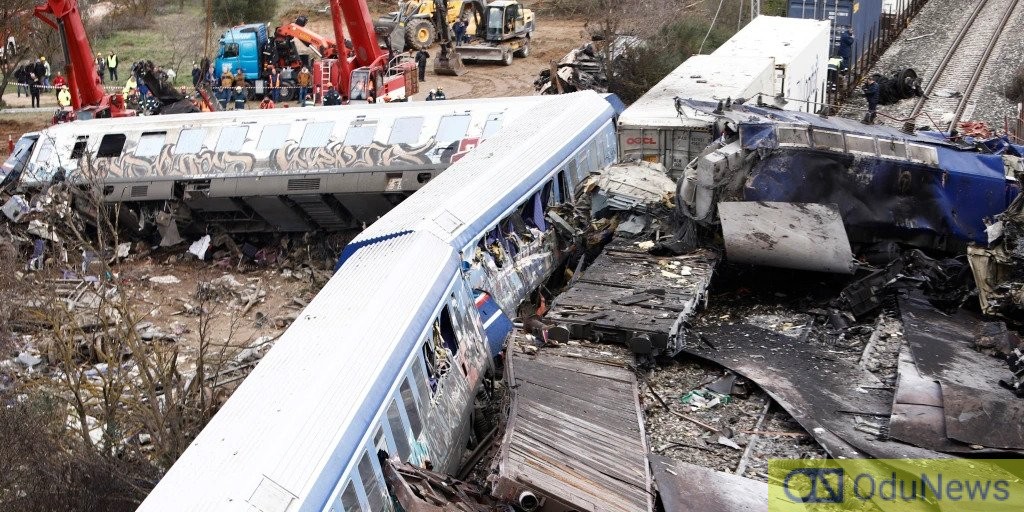The death toll from the tragic train crash in Greece has increased to 57, according to Eleni Zaggelidou, one of ten coroners working on the investigation.
DNA had been taken from 57 intact bodies recovered from the scene. On Thursday, rail workers held a one-day strike following the disaster, blaming government neglect.
The walkout followed protests in Athens, Thessaloniki, and the city of Larissa, near the site of the disaster. The railway workers’ strike began at 0600 local time (0400 GMT), affecting national rail services and the subway in Athens.
The passenger train, carrying 350 people, collided with a freight train after both ended up on the same track, causing the front carriages to burst into flames.
Rescue workers are still searching for victims as they go through burned and buckled carriages. The railway workers’ union blamed successive governments’ “disrespect” towards Greek railways for leading to this “tragic result.”
Greece’s Deputy Minister of Health, Zoe Rapti, said during a hospital visit that investing in the rail network had been made more difficult by the Greek debt crisis around 2010, which led to drastic austerity measures in exchange for a financial rescue by the European Union and the International Monetary Fund.
The country’s transport minister has resigned over the incident, saying he would take responsibility for the authorities’ “long-standing failures” to fix a railway system that was not fit for the 21st Century. However, Prime Minister Kyriakos Mitsotakis’s suggestion that “tragic human error” was to blame has caused anger. The government has promised an independent investigation that it promises will deliver justice.
During the silent vigil held in Larissa to commemorate the victims of the incident, one demonstrator said he felt the disaster had been long coming, while another said that the station master arrested should not pay the price “for a whole ailing system.”
Families have given DNA samples to help identification efforts, with the results expected to be available on Thursday. The majority of the lost people were young students, who never reached their destinations.
The tragic incident has sparked protests and strikes across the country, with many blaming government neglect and austerity measures for the lack of investment in the railways.



Comments are closed.